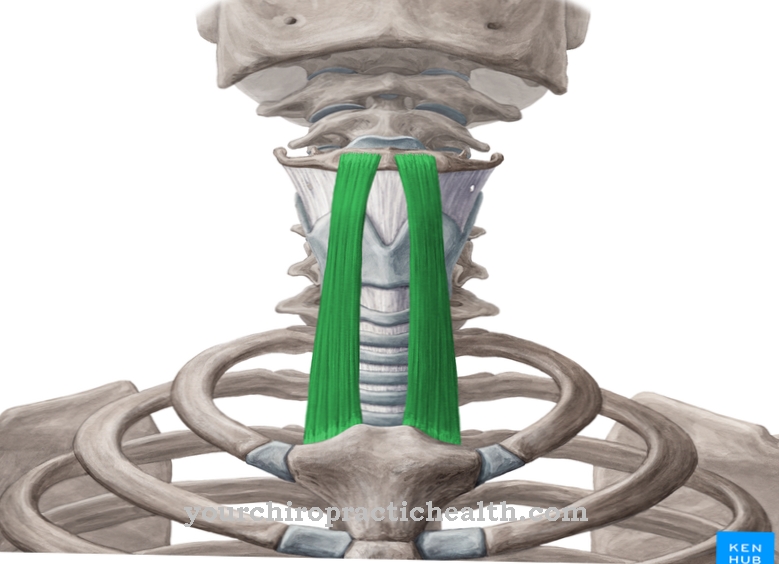Sedatives are drugs that have a depressant effect on the various functions of the central nervous system and thereby have a calming effect on the body. From a certain dosage, the transition to sedation, i.e. anesthesia, is fluid, so it should always be taken with care. Sedatives are to be differentiated from sleeping pills.
Anxiety & stress tranquilizer

Sedatives can be used for many physical or mental disorders that cause restlessness. A short-term use of tranquilizers can be used in the event of stress at work, in order to maintain productivity. This can improve the living situation in the short term, but the stress should be eliminated in the long term.
Tranquilizers can also be temporarily helpful in cases of fear of exams or flying. However, such a sedative should never be taken for a long time. In the case of a major medical intervention, the patient is usually given sedatives to reduce stress before the intervention begins.
After accidents with subsequent tension and the resulting painful conditions, a short-term administration of a sedative can have an antispasmodic and muscle-relaxing effect.
In the case of psychological problems, tranquilizers are used in particular for states of tension, anxiety and excitement. But even with phobias and psychosomatic disorders, the administration of a sedative can improve the condition. Since sedatives also have a sleep-promoting effect, they are also often used for sleep disorders. But see the article: Sleep aids and sleep disorders.
Herbal, Natural & Chemical Sedatives
A basic distinction is made between Sedatives on a chemical-synthetic and plant-natural basis. On the chemical-synthetic basis, the benzodiazepines are the most frequently used. However, these are usually very strong and have more side effects. Other important man-made sedatives are neuroleptics, beta blockers and antidepressants.
The herbal and natural sedatives are mostly available in tablet or capsule form. However, since the active ingredients are also water-soluble, the dosage form as tea is also very popular. The best known herbal sedatives are valerian, hops, St. John's wort and lemon balm.
Sedatives are also used in homeopathy. Drops or globules of Acidum phosphoricum, Arnica or Argentum nitricum are used here. In Bach flower therapy, essences of elm, larch, olive or oak can be used as sedatives.
The transition between the herbal and the chemical-synthetic sedatives is fluid, however, as the active ingredients are often very similar. A further distinction between tranquilizers can be made in terms of the amount of active ingredient, speed of action, type of metabolism, duration of action and type of breakdown in the body.
You can find your medication here
➔ Medicines to calm down and strengthen nervesRisks & side effects
Sedatives however, have many different side effects, depending on the active ingredient and strength, and bring some risk factors with them. As the body gets used to the tranquilizers used, it can become dependent.
They also slow down breathing and lower blood pressure. Tranquilizers often cause tiredness and dizziness and can lead to headaches. Another undesirable side effect is that the patient may feel drowsy and confused after taking tranquilizers. Depression is also often associated with the use of sedatives.
Since tranquilizers slow down the ability to react, driving vehicles and machines is not advisable. Sexual needs can also decrease with long-term use of sedatives. Due to the risks and side effects, at least long-term use of sedatives of any kind should only be carried out under medical supervision.








.jpg)





.jpg)






.jpg)






